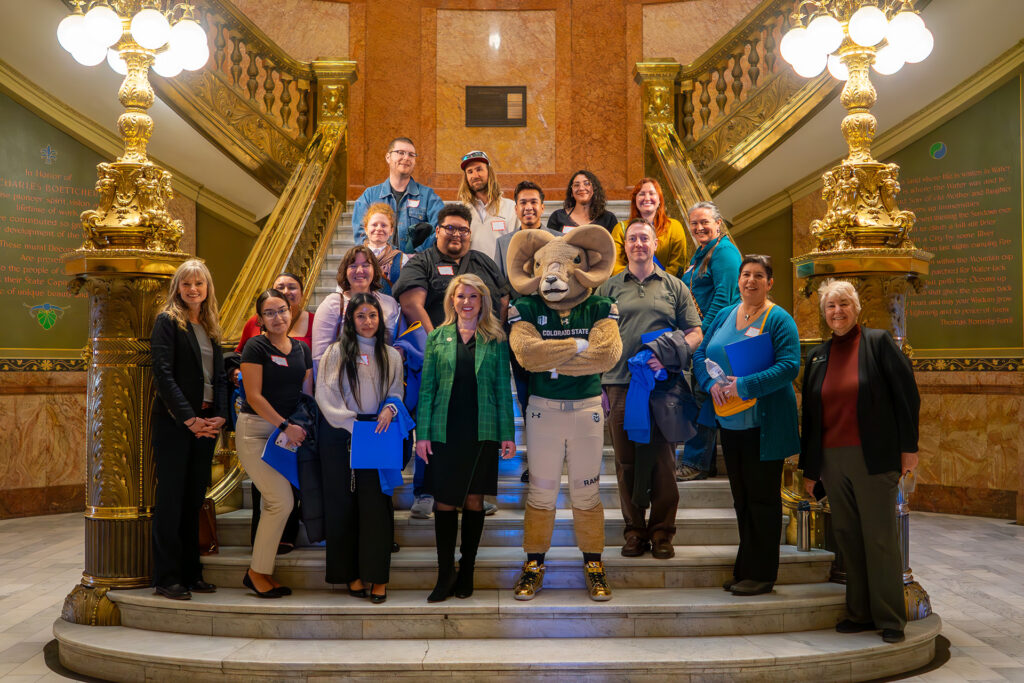
Colorado State University social work students demystified the “black box” of policy last month by sitting in on an active House floor session and directly discussing their experiences with elected officials. The February 12 visit to Colorado’s Capitol building in Denver brought both master’s and bachelor’s students in policy classes to witness in action what they study in the classroom.
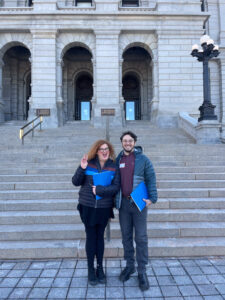
“Experiential learning and skill-building are necessary to foster a sense of self-efficacy in navigating the often-intimidating policy landscape,” explained School of Social Work Assistant Professor Elizabeth Kiehne, who organized the day.
Micha’el Miller, a student in the hybrid MSW program, described his experience at the capitol as, “intense, yet invigorating.”
Maxfield Martinez, an MSW student on the Fort Collins campus, said, “I learned so much. It is one thing to have an abstract understanding of the legislative process, but it was entirely different to be there on the House floor. I was most surprised by the human element that was so tangible.”
Kiehne teaches macro social work and policy courses, and advocates for more social workers to be involved in the legislative process. “It is amazing how much more accessible the policy process and advocacy feel to students after seeing, feeling, and hearing it in real-time,” she said. “It dispels myths about policy and politics, gives insights into the black box of policy, and makes continued engagement more likely.”
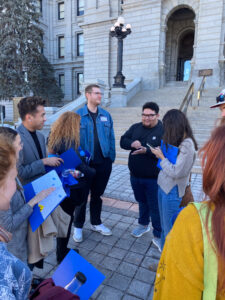
Learning in the real world
“Being at the Capitol underscored the importance of critical reflection when crafting policy, as well as ethical, anti-oppressive education like we receive at CSU, should we find ourselves in policy,” Miller said.
Martinez was discouraged by seeing proposals that could have negatively affected historically marginalized communities, but was equally inspired by those who were pushing back. “I was deeply moved to see there were folx doing the work, advocating for change, and sticking their necks out for people that have been systematically marginalized,” he said.
Social workers in macro settings
According to Kiehne, big-picture, systems change work has come to be decentered in social work, despite the profession’s application of a structural lens to social issues and systems change work being a prominent part of the profession’s early years. “This is really important for us to be talking about, reckoning with, and shifting in light of the many, many pressing social issues impacting people today both within Colorado and nationally,” Kiehne said. “I have a deep-seated conviction that social workers have a lot of valuable expertise and insights to infuse into policy conversations and that, together, we could have a whole lot more influence over how policies develop than we do now.”
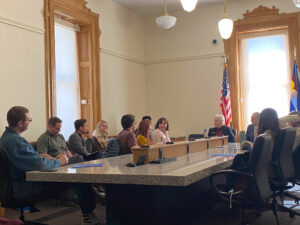
A busy day
The busy day of civic engagement started with a briefing from the ACLU of Colorado, where ACLU staff spoke with students about the importance of public engagement and gave students an overview of bills related to social justice that are currently in process.
Then, Kiehne arranged a special invitation to sit in on the House of Representatives chamber with legislators as they commented and voted on bills.
“Representative Tim Hernández made a point to enthusiastically welcome us as we entered the House chamber,” said Kiehne of the Democrat who represents Denver County, District 4 in the Colorado General Assembly and serves on the House Health and Human Services Committee. “He later circled back on the House floor to say hello to students one by one and translate the processes we were observing into everyday language. Actions like that mean a lot and help break down power differentials that usually exist in these spaces. It is also empowering to see people from minoritized groups in political office.”
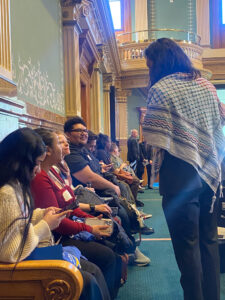
Afterward, students met with two Fort Collins representatives. The students asked questions about what they witnessed in the House chamber and discussed the legislation, like a racial equity study bill and housing legislation, important to them and those with whom they work.
Finally, students attended two “gripping” committee hearings, where the connections between how policy impacts social work practice were made clear, according to Kiehne. One bill would have lowered certain state taxes, which would impact the funding of social programs, and another would have restricted mail-in voting, an issue commonly connected to voter turnout among historically marginalized communities.
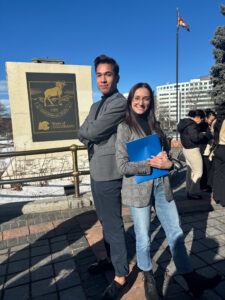
Learning impact
“Students who participated in this day of experiential learning have already gone back to the capitol—some in person and some virtually—to testify in committee on legislation they care about and are following,” Kiehne said. “This is so exciting to see! Each time I learn about a current or former student testifying in the Colorado state legislature, giving public comment at a city council meeting, participating in a coalition, or setting their sights on something like an advisory board, it brings me hope that social work might be moving toward greater participation in social justice-oriented systems change work.”
The School of Social Work is part of CSU’s College of Health and Human Sciences.